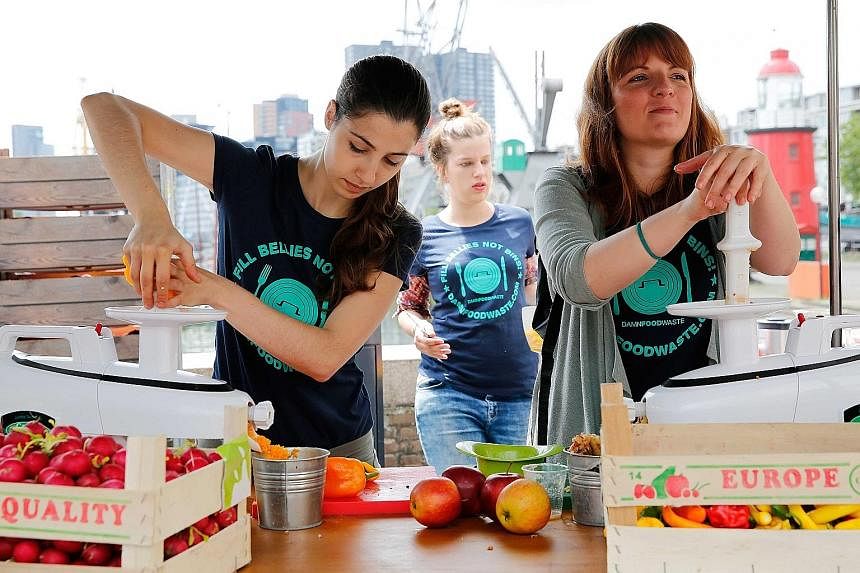PARIS - The world's top food and drink companies have promised to halve the food they waste by 2025, seeking to pre-empt government regulation prompted by concern about the environmental, economic and social costs of such inefficiency.
The Paris-based Consumer Goods Forum (CGF), a network of some 400 retailers, manufacturers and other players from 70 countries with combined sales of €2.5 trillion (S$3.7 trillion), made the pledge at a meeting in New York.
The CGF said it will work on measuring a baseline for 2016 and then create monitoring and public reporting mechanisms as its members try to cut food lost during production and shipment and maximise the use of remaining waste.
"It is a tragedy that up to two billion tonnes of food produced around the world (each year) is lost or wasted, never making it on to a plate," said Mr Paul Polman, chief executive of Unilever, whose products range from Magnum ice creams to Dove cosmetics.
"At a time of growing food insecurity and climate change, we can't afford to let this continue."
The UN Food and Agriculture Organisation has said that one-third of all food produced worldwide, worth US$750 billion (S$1 trillion), is thrown out each year, squandering as much water as three times that contained in Lake Geneva.
The CGF said food waste, which often ends up in landfills, is responsible for releasing 3.3 billion tonnes of greenhouse gases into the atmosphere each year, meaning if food waste were a country, its carbon footprint would be third only to China and the United States.
Mr Paul Bulcke, chief executive of the world's biggest food and beverage company Nestle, said the planned measures should contribute to moves to preserve natural resources, especially water, and to limit the rise in global temperatures to 2 deg C, a target of climate change negotiations.
France announced plans last month to crack down on food waste, with legislation banning big supermarkets from destroying unsold but edible food on pain of fines or even jail sentences. Under the law passed last month as part of broader legislature on energy and the environment, supermarkets of more than 400 sq m will be forced to sign contracts by July 2016 to donate unsold but edible food to charities or for use as animal feed or farming compost.
But the French Federation for Commerce and Distribution said it is a mistake to target only big supermarkets, which it said represent only 5 per cent of total food waste. The French throw away 20kg of food per person per year, costing up to €20 billion annually, according to the French Environment Ministry.
The European Commission has proposed that member states develop national food waste prevention strategies to reduce waste by at least 30 per cent by 2025.
Germany has pioneered "food sharing", where the Internet is used to distribute produce recovered from store rubbish while still in good condition. Britain's biggest supermarket chain Tesco plans to introduce a pilot scheme at 10 stores under which unsold food will be given to charities.
REUTERS

